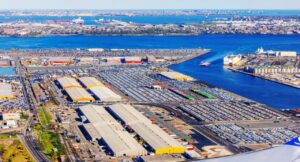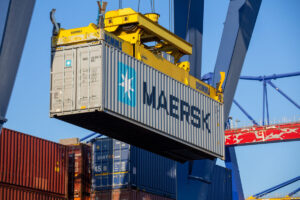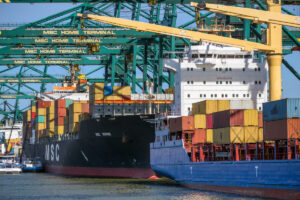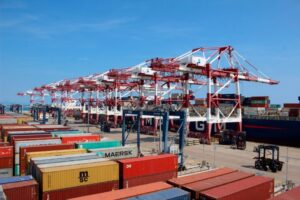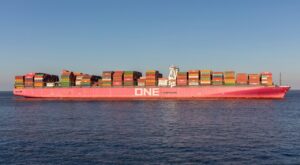IBM and Maersk have announced that they will start collaborating in using blockchain technology to help transform the global, cross-border supply chain and making the software available to the shipping and logistics industry.
A new video above explains how the paper trails of tens of millions of shipping containers from all over the world will be managed by the software, based on the Hyperledger Fabric and built by IBM and Maersk, which has the potential to save the industry billions of dollars.
The ocean freight industry accounts for 90% of goods in global trade but transport remains highly dependent on paper forms that are never digitized.
IBM and Maersk's video explains the process through research that followed international shipments of flowers to Royal FloraHolland from Kenya, Mandarin oranges from California, and pineapples from Colombia to validate the solution for shipments coming into the Port of Rotterdam.
According to research by Maersk, single shipments can require sign-off from 30 unique organisations and up to 200 communications.
As a result, one lost form or late approval could leave the container stuck in a port and the whole process can take more than one month.
Blockchain, as a shared, distributed ledger, aims to digitize this process and trace a containers path through the supply chain with transparency and security. All parties have end-to-end visibility of the container’s progress through the supply chain.
This involves a shipment being prepared and information added to blockchain. Then, as the container awaits transfer to port, officials submit approvals electronically.
Blockchain confirms transactions and executes smart contracts to release the shipment. Afterwards, the container is loaded onto the ship.
Register for the Terminal Automation & Training C-Level Networking Conference to learn more about digital shipping
IBM claims that blockchain will reduce delays by this process and create significant cost savings for all parties involved. It believes that it has the potential to increase worldwide GDP by almost 5% and total trade volumes by 15%
Other impacts include reduction and elimination of fraud and errors, improved inventory management, minimised courier costs, reduced delays from paperwork, reduced waste and the ability to identify issues faster.
Bridget van Kralingen, SVP, Industry Platforms, IBM, said: “We believe that this new supply chain solution will be a transformative technology with the potential to completely disrupt and change the way global trade is done.
“Working closely with Maersk for years, we've long understood the challenges facing the supply chain and logistics industry and quickly recognized the opportunity for blockchain to potentially provide massive savings when used broadly across the ocean shipping industry ecosystem.
“Bringing together our collective expertise, we created a new model the industry will be able to use to help improve the transparency and efficiency of delivering goods around the globe.”
IBM and Maersk have worked with a number of trading partners, government authorities and logistics companies to prove the effectiveness of the solution.
Goods from Schneider Electric were transported on a Maersk Line container vessel from the Port of Rotterdam to the Port of Newark in a pilot with the Customs Administration of the Netherlands under an EU research project.
The US Department of Homeland Security Science and Technology Directorate, and U.S. Customs and Border Protection is also involved.
Technical Paper: VTS in the Age of Digital Information
The solution is expected to be widely available to support multiple parties across the ocean shipping industry ecosystem later this year. IBM is hosting the solution on the IBM Cloud and the IBM high-security business network, delivered via IBM Bluemix.
Ibrahim Gokcen, Chief Digital Officer, Maersk, said: “As a global integrator of container logistics with the ambition to digitize global trade, we are excited about this cooperation and its potential to bring substantial efficiency and productivity gains to global supply chains, while decreasing fraud and increasing security.
“The projects we are doing with IBM aim at exploring a disruptive technology such as blockchain to solve real customer problems and create new innovative business models for the entire industry.
“We expect the solutions we are working on will not only reduce the cost of goods for consumers, but also make global trade more accessible to a much larger number of players from both emerging and developed countries.”
Maersk started investigating the ways in which operations involving paper based bills of lading could be revolutionised with Blockchain last October, with the carrier line recently reinforcing its stance on digitalisation and the organisation's view of global shipping at the 17th TPM annual conference.


